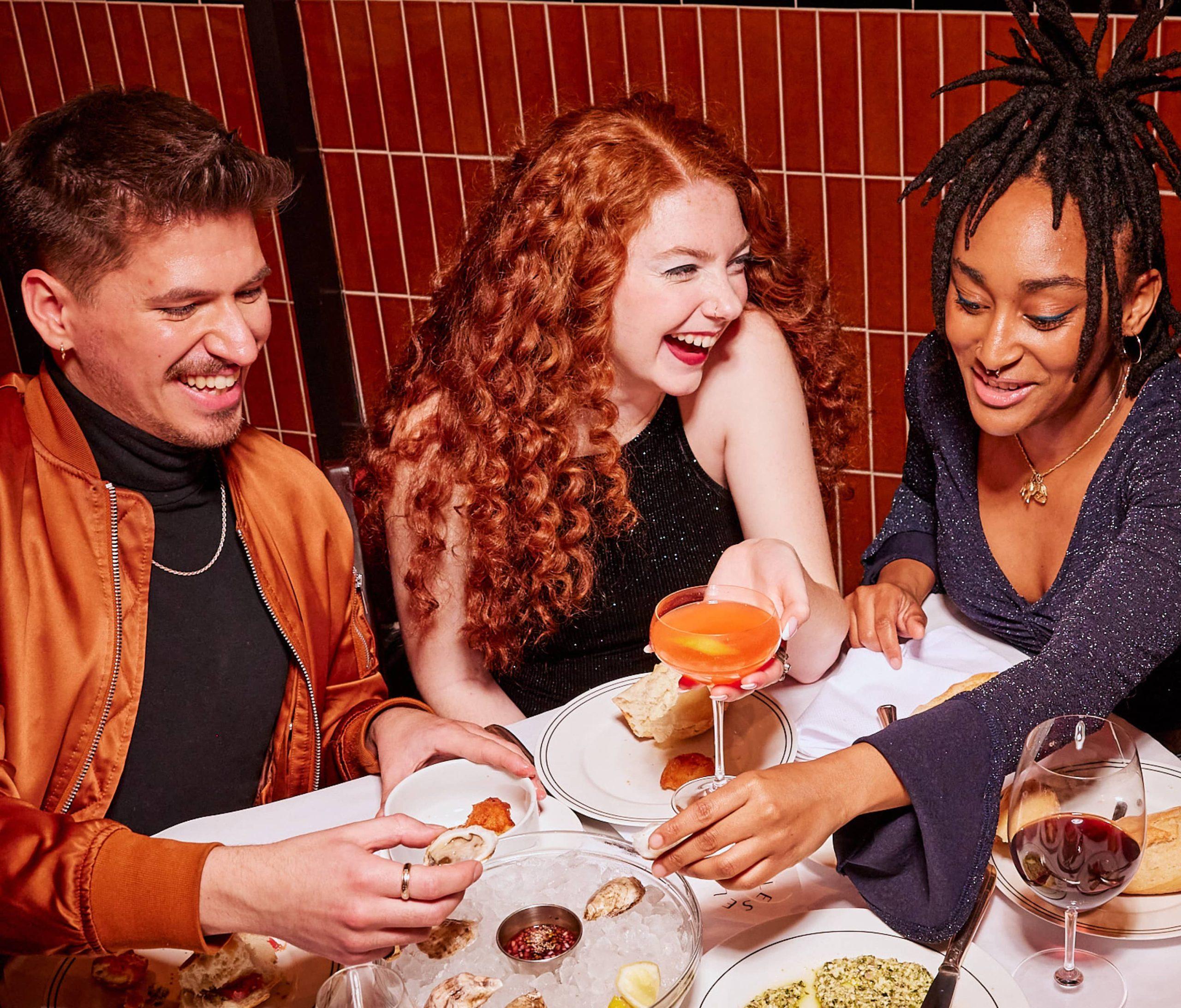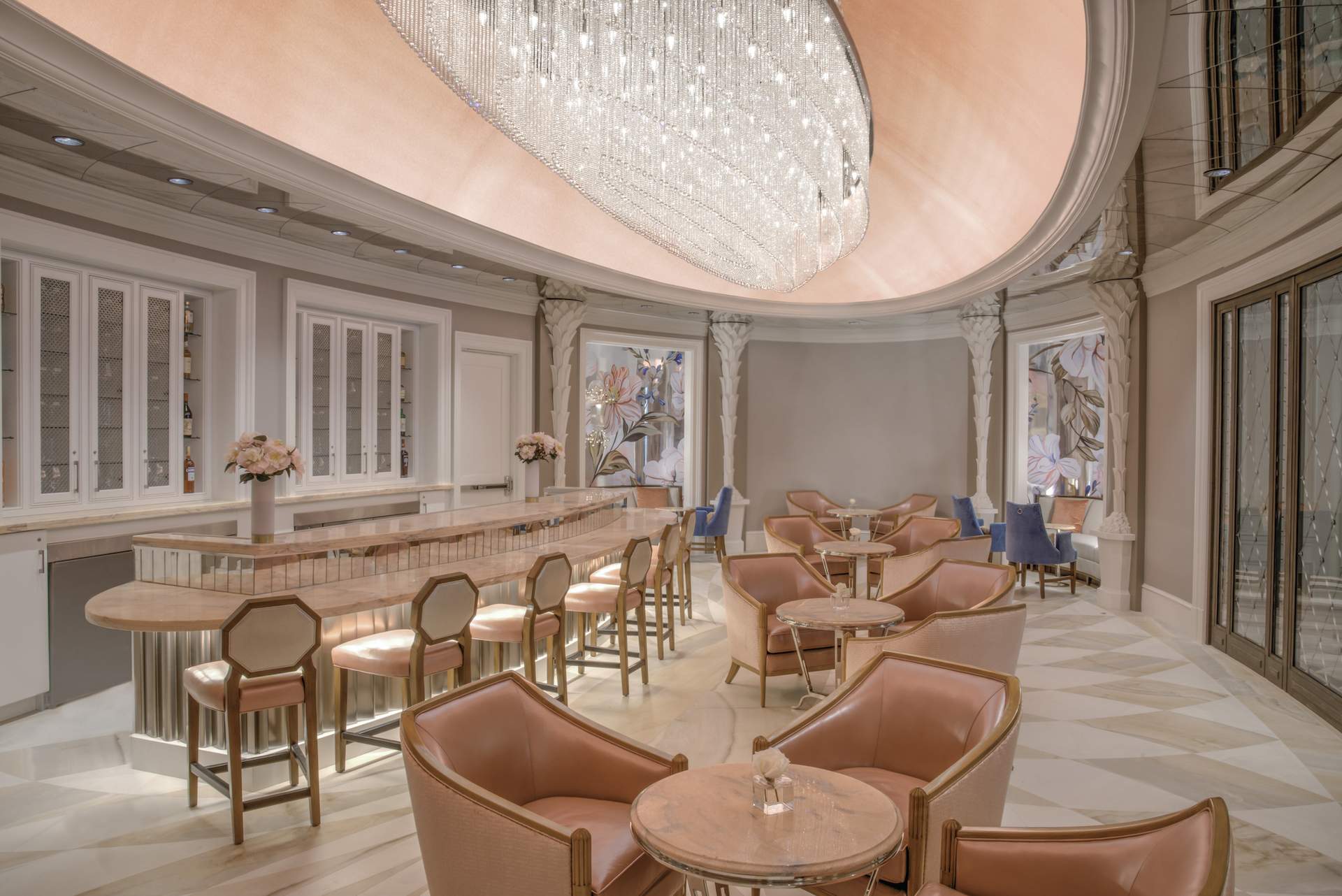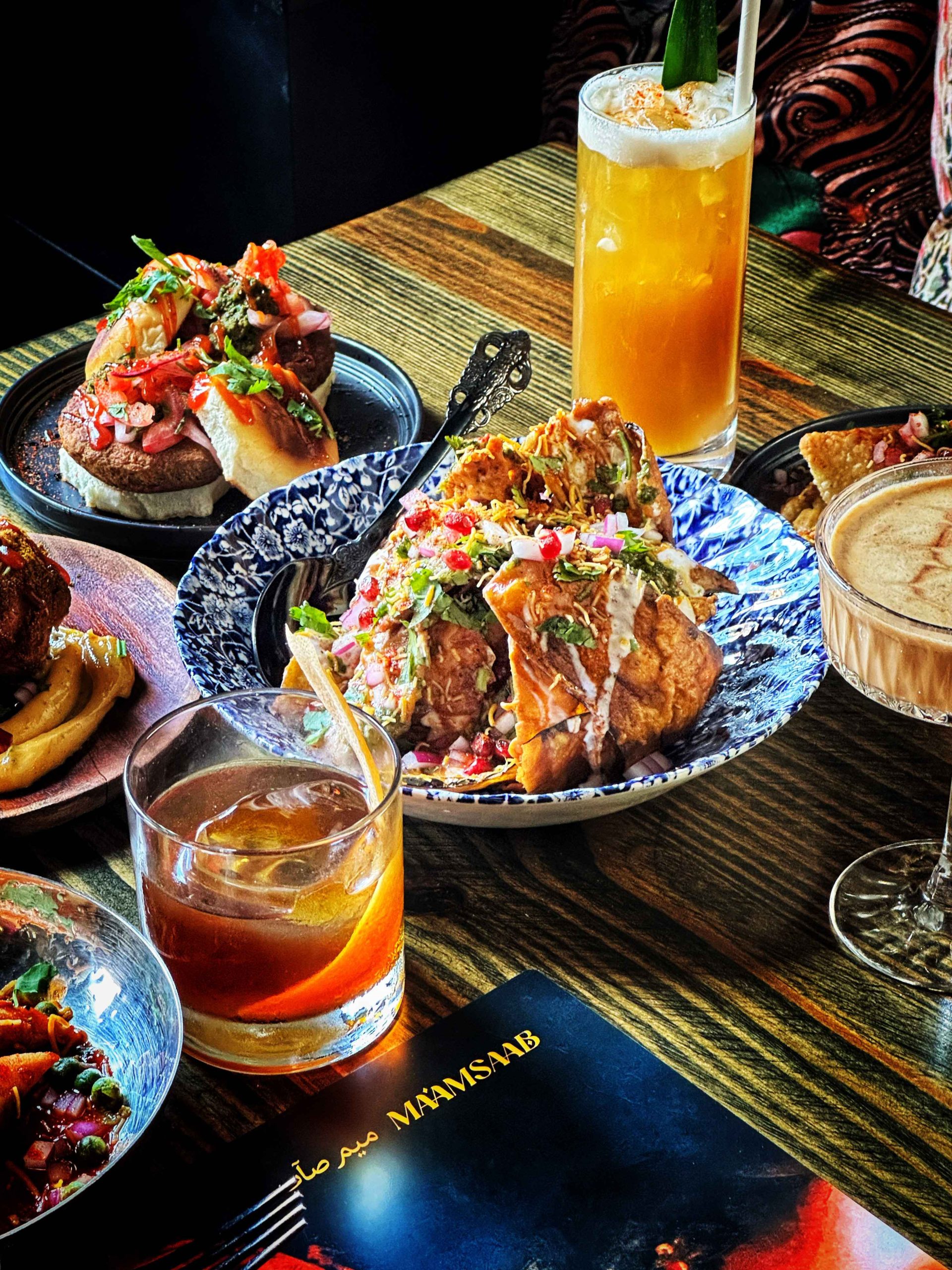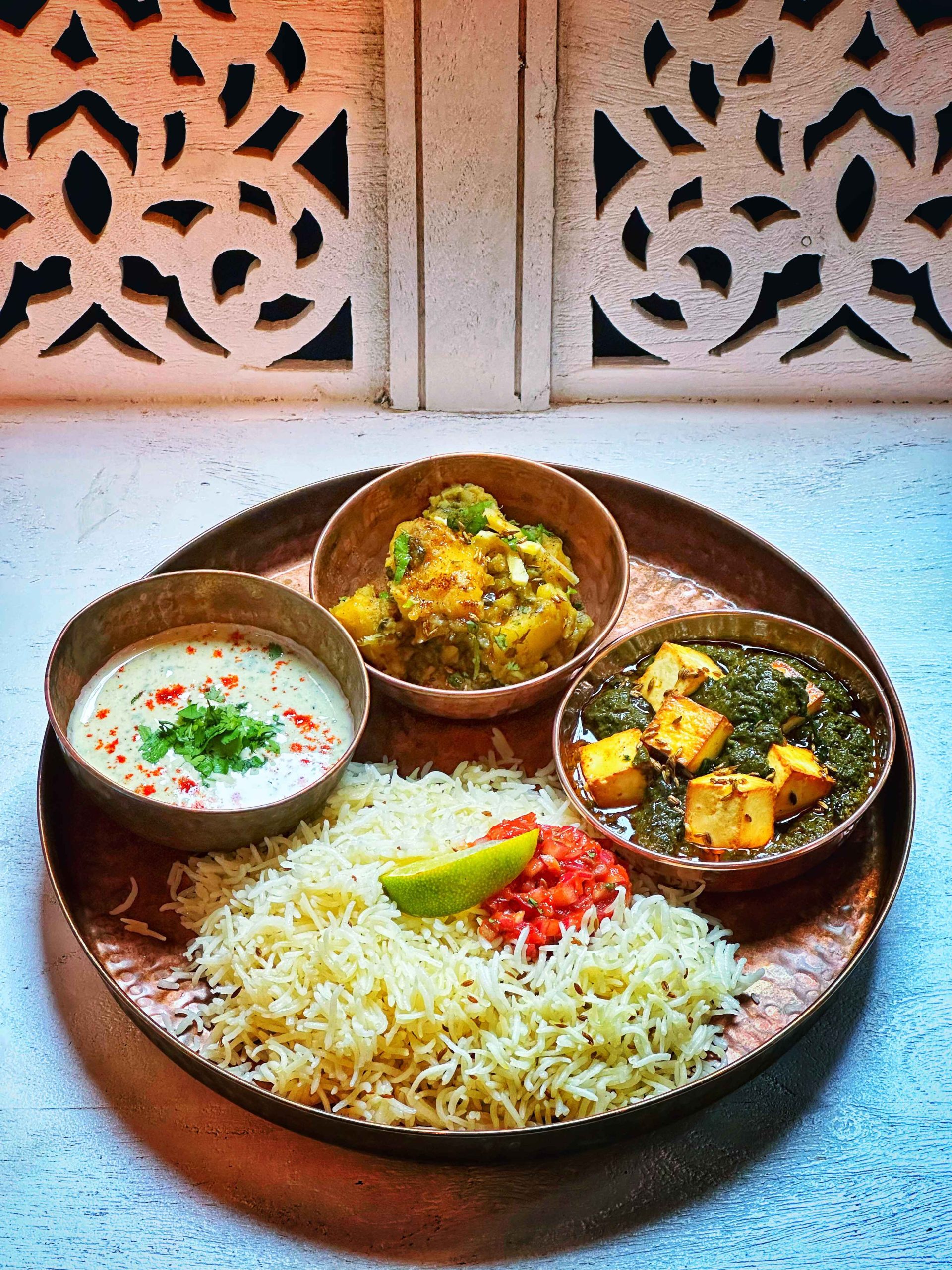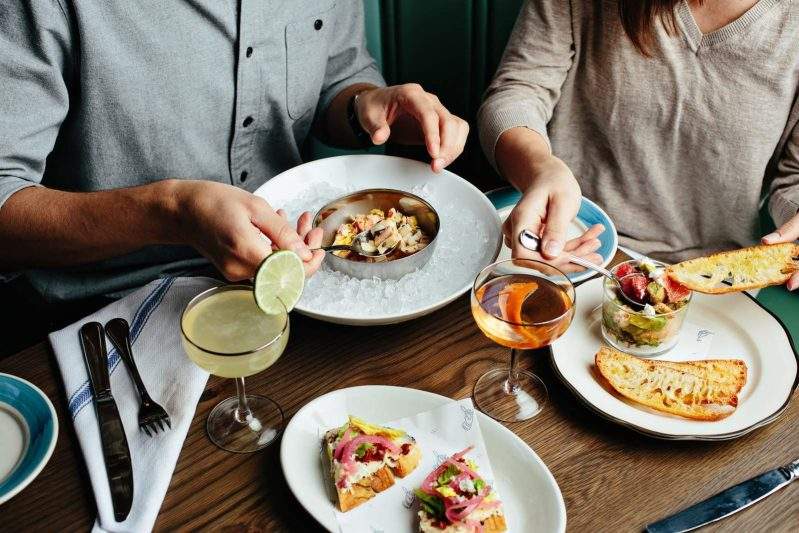When chef Louis Osteen, a Southern food champion, first served shrimp and grits at Charleston Grill in 1989, it was a game changer for elevating humble, home-cooked plates. Though it’s been a few decades since that iconic culinary moment, the spirit of innovation is alive and well in the Holy City.
An enterprising chef and animal rights activist dishes up an all-vegan, Asian-inspired menu downtown. A glamorous hotel bar, named one of South Carolina’s most photogenic spots, pushes back on the casual trend and harkens back to more elegant times. A seafood destination blazes new trails for introducing a first-of-its-kind tipping program to boost wages and attract new employees.
These six spots are serving food and experiences on their own terms in Charleston. Read on for a collection of the city’s most unique restaurants to book right now.
Indaco (Downtown)
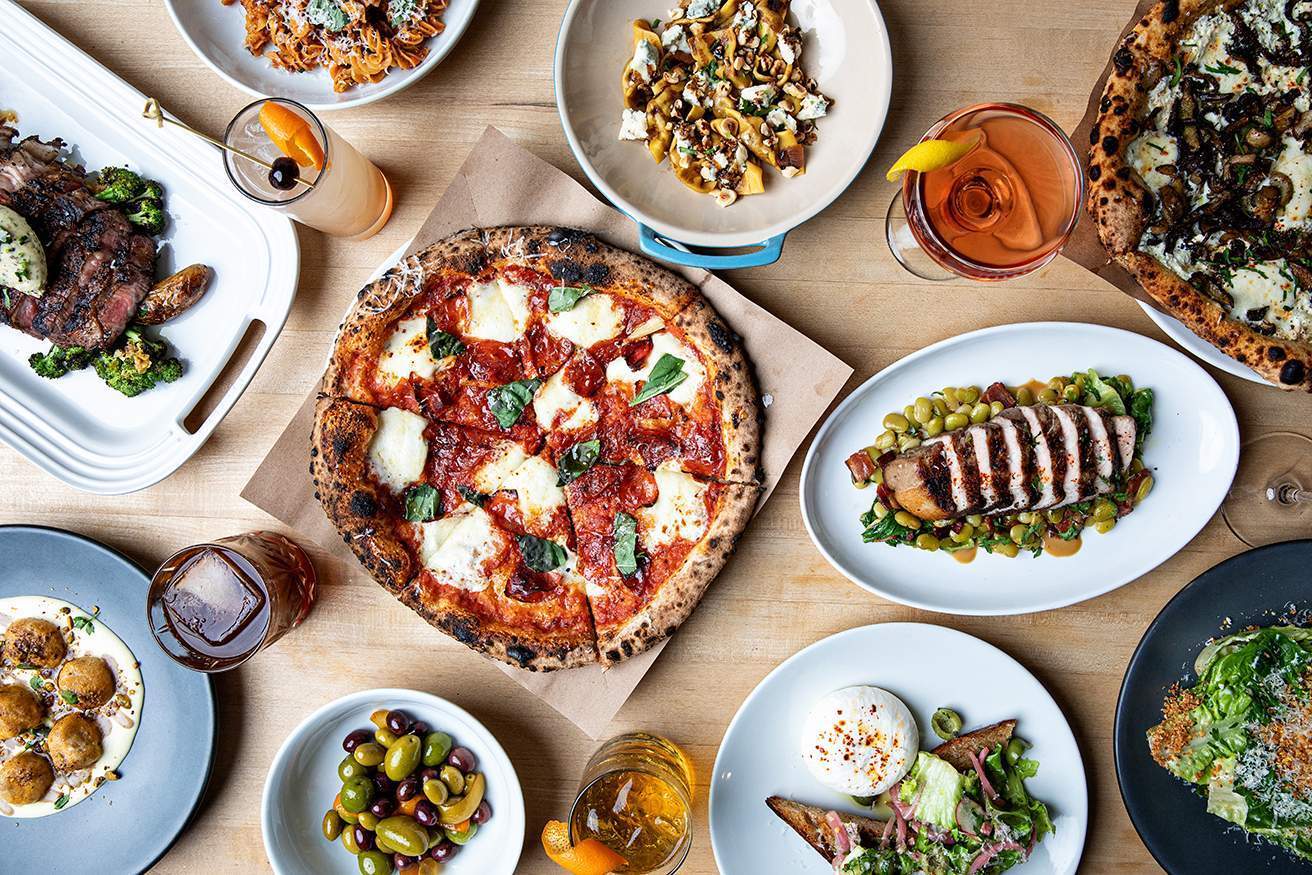
Indigo Road Restaurant Group, the hospitality force behind Indaco, boasts a slew of cutting-edge initiatives aimed at taking care of both diners and employees. At Indaco, a rustic Italian spot serving wood-fired pizza, cured sausages, and hand-crafted pasta, employees receive more than classic benefits such as insurance and a 401K. They also get home-buying assistance, free mental health counseling, and—the latest perk—winter and summer breaks. The company builds a culture that encourages professional and creative growth for its employees, hoping the newest dishwasher will take the opportunity to build a long-term career with Indigo Road. In an industry known for harsh working conditions and a lack of benefits, a forward-thinking restaurant group that prides itself on taking care of its people is a unicorn indeed—but one that inspires others to follow suit.
Neon Tiger (Downtown)
When an experienced restaurateur becomes an animal rights activist, the result is a dining room that serves avant-garde vegan fare. Neon Tiger owner John Adamson teamed up with activist chef Doug McNish to develop a vegan menu that works magic. One of the most dazzling items on the menu is a riff on calamari using king trumpet mushrooms (it’s also gluten-free). Other standout dishes include a whole-roasted blackened cauliflower platter and a variety of pizzas topped with pea protein products. Since its opening in 2020, Neon Tiger has won over vegan and non-vegan Charlestonians, proving that it’s possible to eat well without animal products. For Adamson, Neon Tiger is just the beginning of a larger plan that involves franchising the concept. His ultimate goal is to establish it as a B Corp (a business that meets high social and environmental standards) so it can support nonprofit organizations that raise awareness about the effects of animal agriculture on the planet.
Camellias (Downtown)

With its pink marble bar and glittering crystal chandelier, Camellias, in the Hotel Bennett, bucks the casual dining trend to embrace vintage glamor. Everything about Camellias, which has earned accolades from the Food Network (for being South Carolina’s most Instagrammable bar) and USA Today, runs counter to current trends, making it an old-fashioned spot that’s blazing an elegant path. The offerings skew decadent with an extensive list of bubbles, plus extravagant caviar service. A formal afternoon tea menu features flutes of rosé, finger sandwiches, and delicate pastries. Though jackets aren’t required, they are recommended to match the elegant surroundings. At Camellias, it’s cool to be formal again.
Jackrabbit Filly (North Charleston)
Charleston’s appetite for global flavors draws talented chefs such as Shuai and Corrie Wang. The two began in 2014 with Short Grain, a popular food truck that served excellent Japanese rice bowls. When they opened Jackrabbit Filly, their first brick-and-mortar restaurant in 2019, they could have stayed with that winning formula. Instead, they showcase Shuai’s heritage as a first-generation Chinese American who grew up in New York. Jackrabbit Filly’s food is dubbed “new Chinese American,” and it’s like nothing else in Charleston. Its plates, including cabbage-and-pork dumplings (sustainably sourced from nearby Wadmalaw Island), earned praise from Bon Appétit and the James Beard Foundation, among others. Shuai combines local ingredients with Chinese techniques and flavors. You won’t find congee or Sichuan hot karaage on any other brunch menu in town. These days, the Wangs tinker with dishes for their upcoming restaurant, King BBQ, where the menu will spotlight an inventive mash-up of Chinese and Lexington, North Carolina-style barbecue styles—yet another example of the duo’s cross-cultural prowess.
Well Hung Vineyard and Restaurant (Downtown)
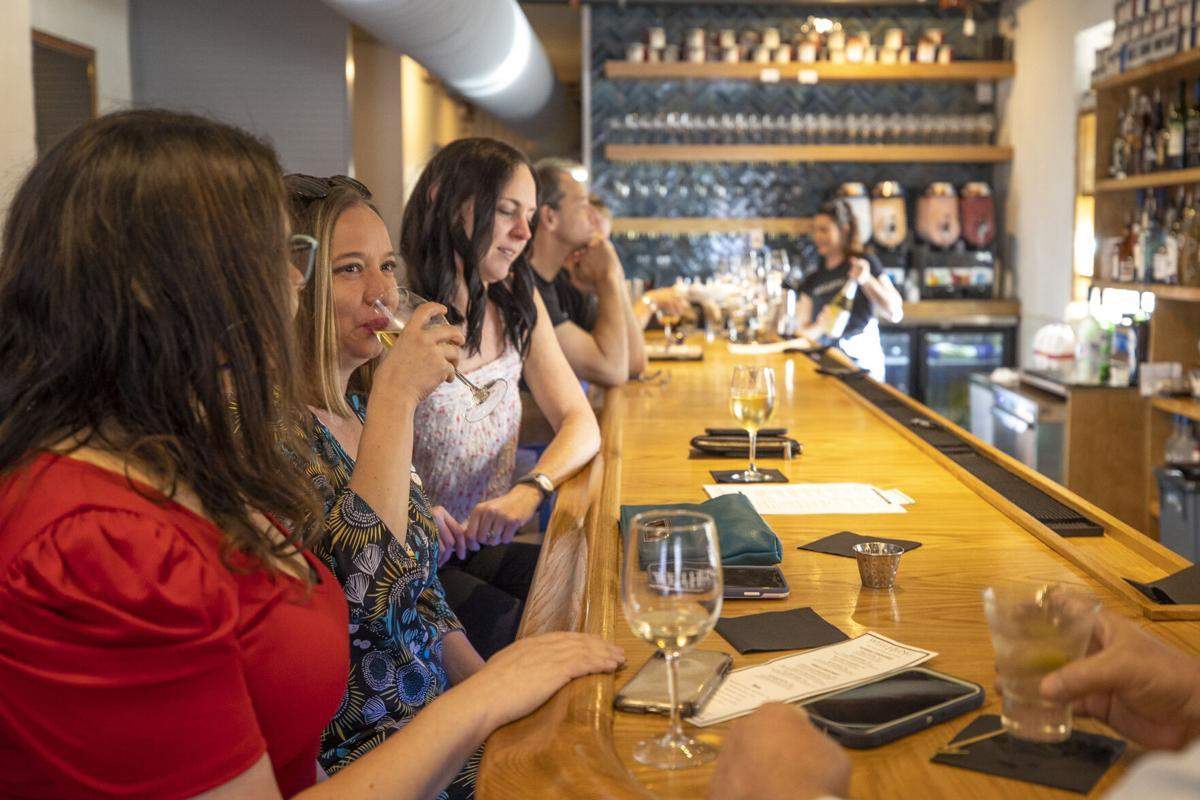
As its name suggests, nothing is taken too seriously at this quirky, one-of-a-kind hangout. Owner Anthony Herring, who opened the restaurant’s first two locations in Virginia, sources wine from some of the best vineyards in California, Washington, and Oregon, offering bottles with irreverent names such as Pop Your Cork and Happy Ending. Diners can explore different varietals by ordering sample flights, purchasing bottles to take home, or joining a wine club that sends quarterly shipments. An eclectic menu, filled with comforting plates such as shrimp and grits, salads, and pizza, changes every three months. Herring’s lighthearted approach to vino stands out in Charleston, and it’s won many fans since opening in February of 2022.
Tempest (Downtown)
During the challenging days of reopening after pandemic-induced closures, Tempest and its sibling restaurants in the 5th Street Group (including New American spot Church & Union) launched a groundbreaking program called Tip the Kitchen. In an attempt to increase restaurant wages and attract new employees, the hospitality group got creative, adding a line item on receipts that let diners send voluntary tips to the kitchen, which the restaurant matches up to $500 a day. Not only did Tip the Kitchen result in an employment application uptick, but the program raised $2 million for kitchen workers—and increased their average pay. The pandemic forced many restaurants to pivot, and the 5th Street Group’s efforts show how stretching the imagination uplifted a hard-hit industry.
Stephanie Barna is a food writer based in Charleston, SC. As the former editor of Charleston City Paper, she has chronicled the Charleston food scene for two decades and has been to every single Charleston Wine + Food Festival since it started. You can follow her dining exploits (and — fair warning — her Weimaraner’s misadventures) on Instagram @stef_barna.
Tried them all? Check out other options here.
